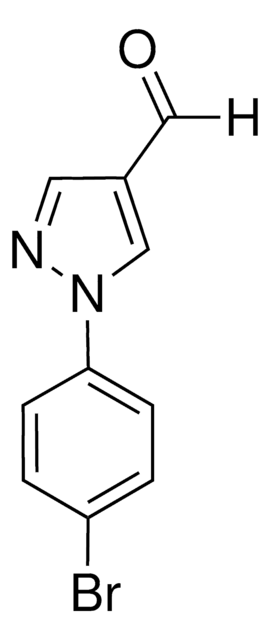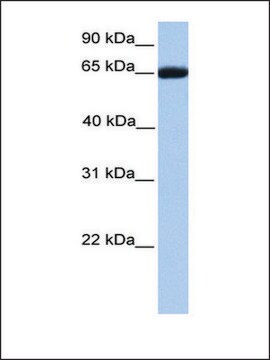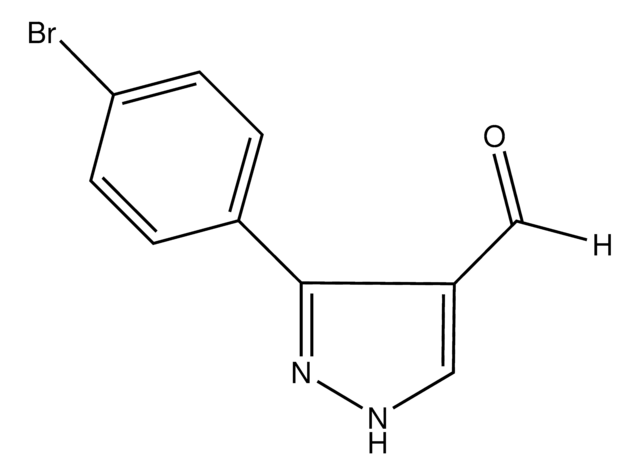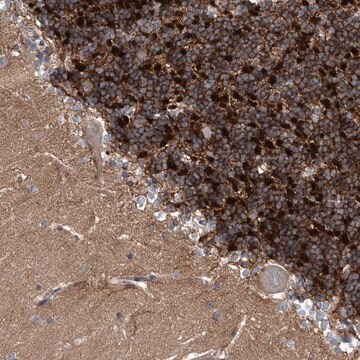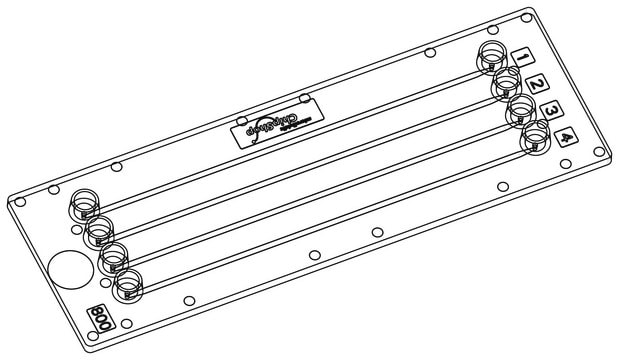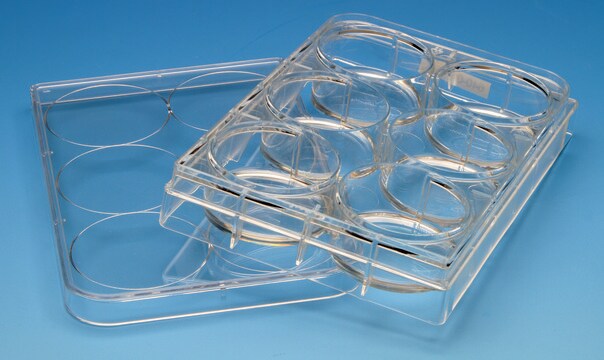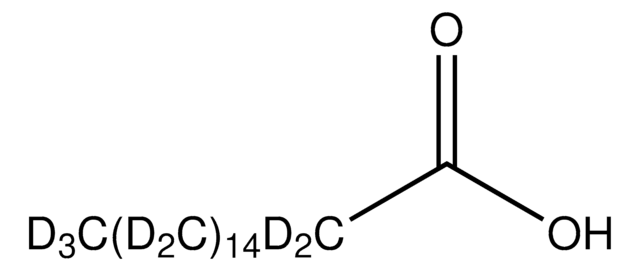MABN691
Anti-GPI Antibody, clone 1B7D7
ascites fluid, clone 1B7D7, from mouse
동의어(들):
Glucose-6-phosphate isomerase, Autocrine motility factor, Neuroleukin, Phosphoglucose isomerase, Phosphohexose isomerase, Sperm antigen 36
로그인조직 및 계약 가격 보기
모든 사진(3)
About This Item
UNSPSC 코드:
12352203
eCl@ss:
32160702
NACRES:
NA.41
추천 제품
생물학적 소스
mouse
Quality Level
항체 형태
ascites fluid
항체 생산 유형
primary antibodies
클론
1B7D7, monoclonal
종 반응성
rat, human
기술
immunofluorescence: suitable
immunohistochemistry: suitable
western blot: suitable
동형
IgG1
UniProt 수납 번호
배송 상태
wet ice
타겟 번역 후 변형
unmodified
유전자 정보
human ... NLK(51701)
일반 설명
Glucose-6-phosphate isomerase (GPI) alternatively known as Autocrine motility factor (AMF), Neuroleukin (NLK), Phosphoglucose isomerase (PGI), Phosphohexose isomerase (PHI) or Sperm antigen 36 (SA-36) and encoded by the gene name GPI is major enzyme in glycolysis and gluconeogenesis. Glucose-6-phosphate isomerase rearranges glucose-6-phosphate (from the phosphorylation of glucose via hexokinases) into fructose-6-phosphate (F6P) as the second step in glycolysis. Interestingly however, Glucose-6-phosphate isomerase plays an entirely different sort of role outside of the cell than when it is inside being part of glycolysis. When secreted, Glucose-6-phosphate isomerase acts as an autocrine motility factor for various cancers and is critical for metastasis, while when secreted in nervous tissue it acts as a neurotrophic factor for sensory and spinal neurons and in lymphocytes it acts as a lymphokine upon T cell ligand binding and stimulates B cells to secrete immunoglobulin. Mutations in Glucose-6-phosphate isomerase are the second most frequent cause of inherited glycolytic-enzymopathy in humans. This autosomal recessive disorder is characterized by anon-spherocytic anemia of variable severity which can present with neuromuscular dysfunctions defined by muscle weakness and mental retardation. EMD-Millipore’s Anti-Glucose-6-phosphate isomerase monoclonal antibody has been tested in western blot on recombinant protein as well as cell lysates from HepG2, SMMC-7721 and rat liver tissue and in paraffin embedded immunohistochemistry on human kidney and fluorescent immunocytochemistry on L-O2 cells in culture.
면역원
Purified recombinant fragment of human GPI expressed in E. Coli.
애플리케이션
Anti-GPI Antibody, clone 1B7D7 is a highly specific mouse monoclonal antibody, that targets Glucose-6-phosphate isomerase & has been tested in western blotting, IHC & Immunofluorescence.
Immunohistochemistry Analysis: A 1:200-1,000 dilution from a representative lot detected GPI in human kidney tissue.
Immunofluorescent Analysis: A 1:200-1,000 dilution from a representative lot detected GPI in L-02 cells.
Optimal working dilutions must be determined by end user.
Immunofluorescent Analysis: A 1:200-1,000 dilution from a representative lot detected GPI in L-02 cells.
Optimal working dilutions must be determined by end user.
품질
Evaluated by Western Blotting in HepG2, SMMC-7721, and rat liver lysates.
Western Blotting Analysis: A 1:500-2,000 dilution of this antibody detected GPI in HepG2, SMMC-7721, and rat liver lysates.
Western Blotting Analysis: A 1:500-2,000 dilution of this antibody detected GPI in HepG2, SMMC-7721, and rat liver lysates.
표적 설명
~56 kDa observed. Uncharacterized bands may appear in some lysate(s).
분석 메모
Control
HepG2, SMMC-7721, and rat liver lysates
HepG2, SMMC-7721, and rat liver lysates
적합한 제품을 찾을 수 없으신가요?
당사의 제품 선택기 도구.을(를) 시도해 보세요.
Storage Class Code
12 - Non Combustible Liquids
WGK
nwg
Flash Point (°F)
Not applicable
Flash Point (°C)
Not applicable
시험 성적서(COA)
제품의 로트/배치 번호를 입력하여 시험 성적서(COA)을 검색하십시오. 로트 및 배치 번호는 제품 라벨에 있는 ‘로트’ 또는 ‘배치’라는 용어 뒤에서 찾을 수 있습니다.
자사의 과학자팀은 생명 과학, 재료 과학, 화학 합성, 크로마토그래피, 분석 및 기타 많은 영역을 포함한 모든 과학 분야에 경험이 있습니다..
고객지원팀으로 연락바랍니다.
